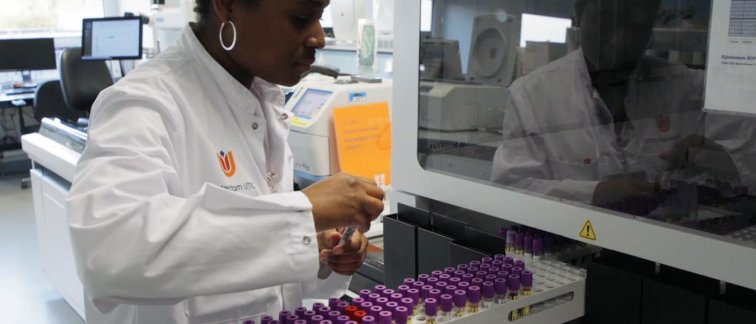Genetic risk factors
The publication in Nature reports 13 genome-wide significant loci that are associated with SARS-CoV-2 infection or severe manifestations of COVID-19. Several of these loci correspond to previously documented associations to lung or autoimmune and inflammatory diseases. The researchers were also able to quantify the contribution of non-genetic risk factors such as smoking and high body mass index to COVID-19 outcome.
Data from all over the world
Since March 2020, this global effort, called the COVID-19 Host Genetics Initiative, was founded by bringing together the human genetics community to generate, share, and analyze data on COVID-19 susceptibility, severity, and outcomes. With data of nearly 50,000 COVID-19 patients from 46 studies across 19 countries, more than 3,300 authors contributed to this large-scale study, which makes it one of the most extensive collaboration in human genetics. The COVID-19 Biobank of Amsterdam UMC contributed to this study and consortium by providing DNA and data from COVID-19 patients. Additionally, other Dutch knowledge institutes participated, e.g. Erasmus MC and Leiden University Medical Center.
This project is really team science on a world level.
“This project is really team science on a world level,” Matthijs Brouwer from the Amsterdam UMC COVID-19 biobank says. “In addition to this landmark publication, this project has generated many sub-studies that will further help our understanding of COVID-19. New results are continuously shared online through the project’s website and provide a basis for a multitude of follow-up studies. We are happy to be able to contribute to such an important project with the COVID-19 biobank.”
Power of international collaboration
With this international collaboration of scientists robust genetic signals were found, which could help provide targets for future therapies. Their collaborative efforts, a cohesive spirit of data-sharing and transparency, emphasizes what is possible when combining forces knowing the entire world faces the same threat, also for future genetic discoveries in emerging pandemics.
Read the publication in Nature: Mapping the human genetic architecture of COVID-19
Or find more information on the COVID-19 Host Genetics Initiative

